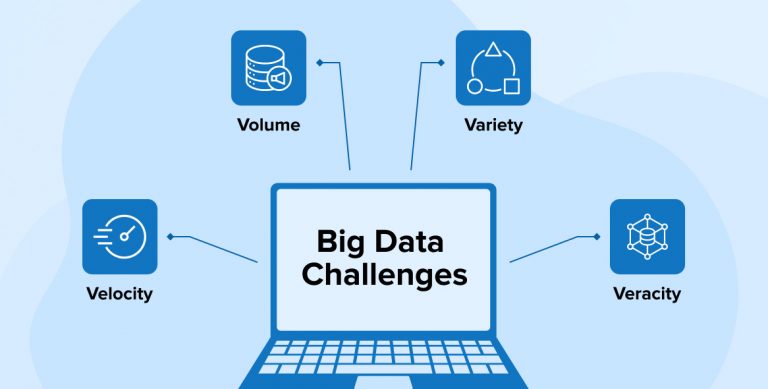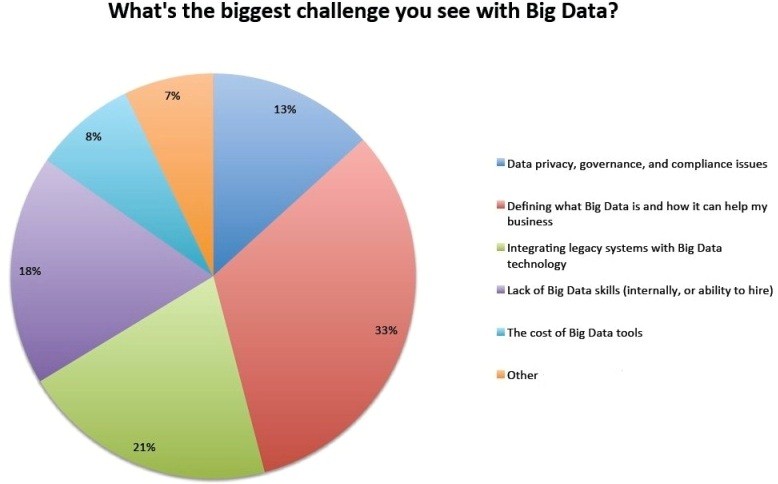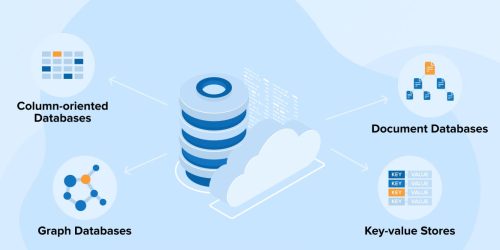Related Blogs

Businesses are growing leaps and bounds since last few decades resulting in many heterogeneous systems getting added in the IT infrastructure and generating enormous amount of structured & unstructured data from various internal as well as external entities. This enormous data, known as Big Data, has imposed big challenges and there is a pressing need to develop applications to consolidate all the data on a single platform and analyze it to get the insights that can truly drive the businesses towards success.
According to a report by Forbes, 38.2% of all the big data and analytics applications in use today are for customer-facing departments, while 42.6% of such applications are for internal departments. It is evident that with the help of modern EDW (Enterprise Data Warehouse) combined with advanced analytics, the combination of conventional and unstructured data sources are contributing to the development of new business insights.
But, in spite of all these facts and figures, there is some resistance in adopting Big Data Solutions. The CXOs seems to be facing some challenges in moving on to this much needed new age framework. What are those challenges? Let’s check out.

Img source: radar.oreilly.com
Data Privacy, Governance and Compliance
When we talk about big data privacy efforts, the points to be considered are the source of data and the way it is used. As we all understand, discussion always goes in the direction of how to use or exploit data. However, there is a tendency to avoid the sensitive subject of how to maintain privacy of an individual and how to protect data in an increasingly digital world. The complicating factor is how to keep a balance between:
- The value received by end users
- Maintaining the level of privacy and data protection
This issue needs to be addressed if we want our digital business practices to be seen as credible to our customers as providers of big data content.
Integrating Legacy Systems with Big Data
Legacy systems often hold valuable data too important to be lost in the process of an upgrade or transition to a new platform. With vendor-supported lifetimes often exceeded, and newer technology or more efficient methods backing, many organizations have legacy systems that need conversion, but integrating the new with the old can be difficult. Many customers fear about losing their valuable data and thus they are not ready to accept the integration.
Lack of Big Data Skills
Skilled Big Data analytics workers are becoming hard to find as more and more companies are vying for these jobs. There are few relevant information findings like – Education is a big indicator for big data workers, majority of big data workers are relatively new, the big data workforce is pretty seasoned, big data workers labor in bigger organizations and data analysis is the top specialization. Majority of the solutions are revolving around Hadoop and more and more tools are getting launched in its ecosystem. It becomes difficult for big data developers to be on top of all the tools and trends.
The Cost of Big Data Tools
Big data projects are being held back by the high cost of setting up infrastructure to support the capturing of potentially hundreds of millions of data points each day. A lack of a business case and the need to integrate data sources are also holding back adoption, according to the Australian Big Data and Analytics study, published by Telsyte. The research firm spoke to 324 CIOs and senior IT executives in 30 industries for the study, which also found that 25 percent of organization’s with more than 20 staff are using big data applications and services. Telsyte analyst Rodney Gedda said “it can be costly to set up the required infrastructure for projects aimed at deriving business intelligence and analytics from high volume data sets. The perceived high cost of big data tools, the market is primed for low up-front cost options such as those offered by cloud providers and pay-per use options.”
There are major challenges/issues on the radar of CXO team of decision makers but then are they going to live with it forever? Isn’t there any satisfactory solution? Stay tuned and you will know more in the next writing.
Subscribe to our Newsletter
Signup for our newsletter and join 2700+ global business executives and technology experts to receive handpicked industry insights and latest news
Build your Team
Want to Hire Skilled Developers?





Comments
Leave a message...